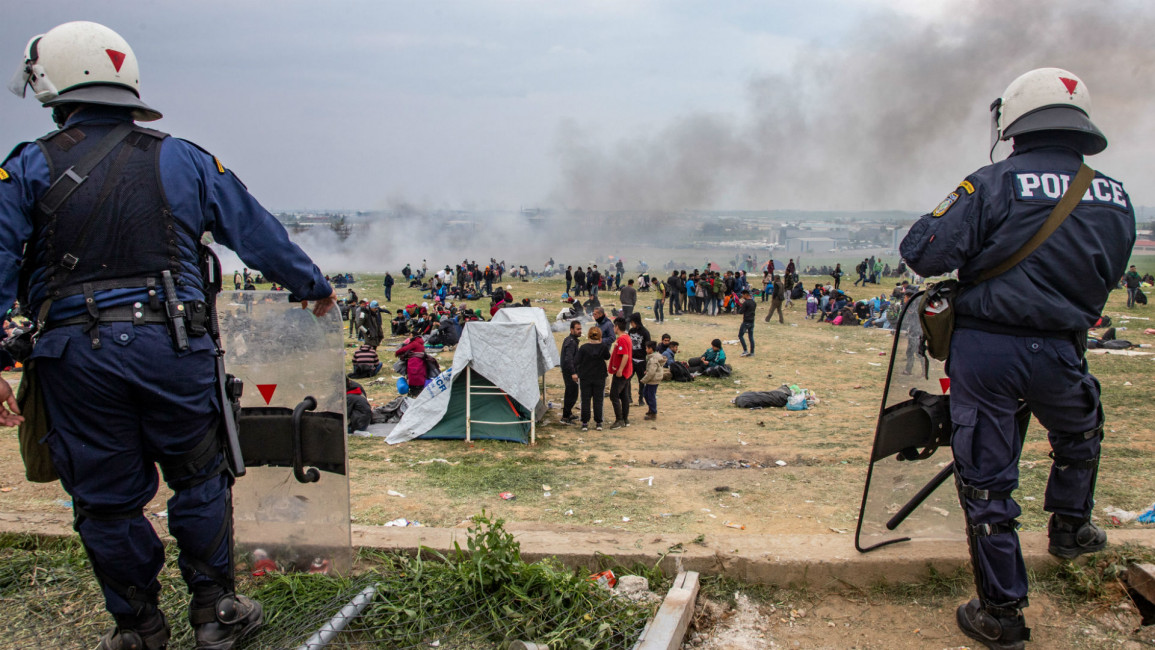Amnesty accuses Greece of using violent pushbacks of migrants as 'de facto border policy'
Greece is unlawfully forcing migrants to return across the border to Turkey and often using excessive violence, according to a report by Amnesty International published on Wednesday.
The 46-page report details the experiences of migrants that have been harassed, detained and in some cases physically abused to a severity amounting to torture, many of whom are from conflict-affected areas in the Middle East and travelled from Turkey to Greece to seek asylum.
45 incidents of pushback are documented from 16 migrant testimonies. This is when migrants are forcibly removed back across a border without the opportunity to claim asylum, which violates Greek, EU and international human rights law.
“Systematic pushbacks not only scar those who endure them but contribute to...a climate of impunity and insecurity,” read Amnesty’s report.
Testimonies in the document described how migrants are often ambushed by soldiers shortly after crossing the Evros River into Greece.
On arrest, their mobile phones and other belongings are confiscated, and for new parents, this sometimes includes nappies and bottles.
Individuals are then detained and often in cramped, unhygienic conditions for a number of hours to several days while unable to speak to a lawyer.
They are then taken to a river crossing in groups, often during the evening or at night, where they are forced to travel back into Turkey. Some of those carrying out the pushbacks do not wear uniforms, but look like civilians, according to the report.
Amnesty said violence is common during the pushbacks. These range from slaps to a more serious case that saw a man’s spine break.
According to one young couple from Syria who were apprehended and forced back to Turkey, there was one incident in which a group of men were stripped and beaten in front of children before being transported over the border.
“I then realised they wanted us to be silent so we won’t yell and scream,” said one Kurdish man who was trying to tell officials they were breaking the law when forcing him back to Turkey.
“The chief finally came...he told me ‘what do you want?’ and I said ‘I want to stay, you can’t push me back.'
“He looked me in the eyes and said [in English] ‘this is my country, I don’t want you,’” the Kurdish man said.
Amnesty acknowledged in the report that pushbacks are not new, noting incidents have been recorded since 2013. However, the “frequency” and “similarity of patterns of violations” have been causing growing concern.
Turkey is also conducting unlawful pushbacks, said the human rights organisations.
Earlier this month, dozens of human rights groups criticised Greece’s decision to designate Turkey a “safe” country to readmit would-be refugees who have been denied asylum.
The report urged Greece and Turkey to halt all practices of pushbacks as well as acknowledge the severity of the problem and launch an investigation into previous incidents of forced removals.
The EU was criticised in the report for its lack of action so far and for allowing border policies, such as the 2016 EU-Turkey migrant deal that forced migrants into hostile environments.
The EU needs to “take urgent measures to ensure that Greece restores conditions that respect European asylum and fundamental rights law at its borders and across the country,” read the report.



